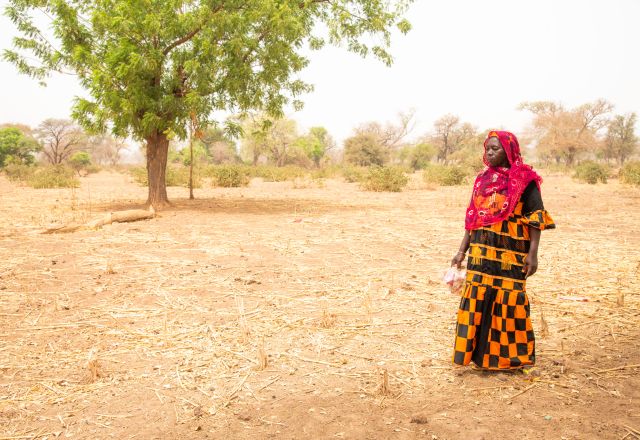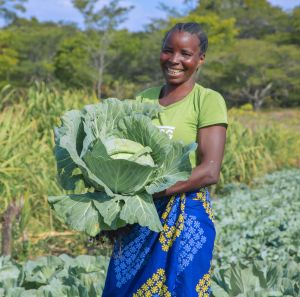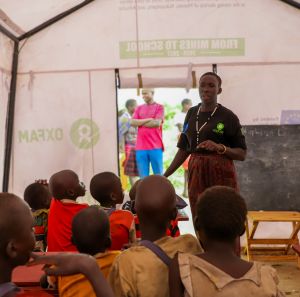People in the Sahel region and across West Africa, one of the most unequal and impoverished parts of the world, are enduring a severe hunger crisis. Recent rainy seasons have featured long dry spells at critical times in the crop cycle, leading to declines in food production across the Sahel and West Africa region. In 2024, unpredictable torrential rains caused widespread damage and crop losses across the region. Insecurity and armed conflict continue to increase the number of people on the move in the region.
Oxfam and our partners are helping people in the affected areas, offering food and cash and other lifesaving support to families and children in crisis. We are improving water and sanitation systems while promoting good hygiene to help communities avoid deadly diseases. We distribute seeds, tools, and provide assistance to livestock farmers.
While immediately assisting people affected by this crisis, Oxfam is also advocating for governments in West Africa and international donors to invest in local agricultural production, health, education, water, electricity, and social protection programs for rural communities to help them ensure their long-term food security.
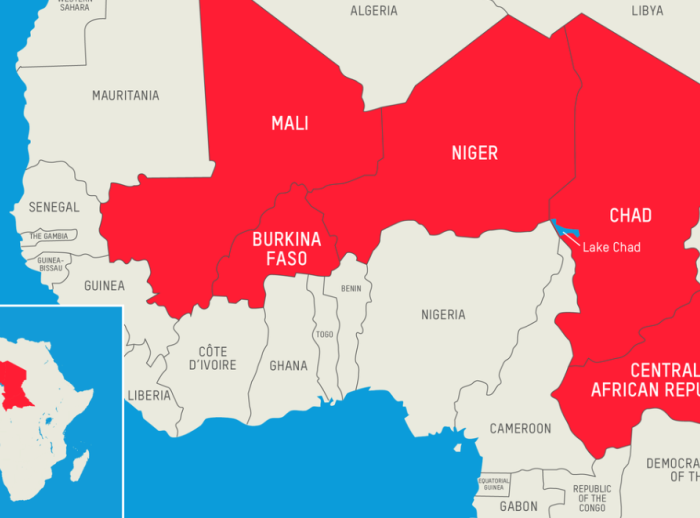
What challenges are people facing in West Africa?
-
23 million
People in need of humanitarian assistance.
-
10 million
People people facing emergency food crisis.
-
90%
Increase in staple grain prices 2024-2025
How Oxfam is responding to the West Africa hunger crisis
Oxfam is providing cash, food, and specific nutrition assistance for pregnant and lactating mothers and vulnerable children. Working with local partners, Oxfam is also helping to provide clean water, building/repairing sanitation systems, and promoting good hygiene measures to help head off serious epidemics like cholera. We also work with local groups to raise awareness of the need to keep women and girls safe from violence, and provide survivors with cash and refer them to organizations that can get them the services they need.
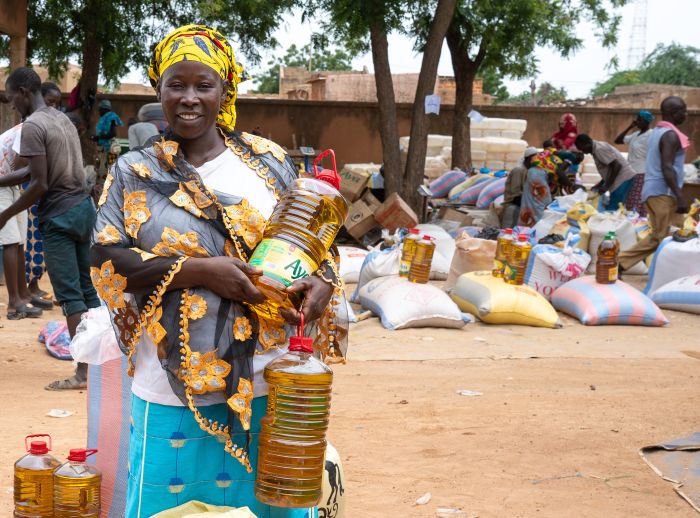
Burkina Faso
Oxfam and our partners in Burkina Faso are helping people with cash, food assistance (including enriched flour for families with pregnant and lactating mothers and infant children), and water and sanitation projects accompanied by hygiene promotion as well as training in the basic rights of women and children and how to help people at risk of or affected by violence. The program is centered in the Sahel, Nord, and Centre- Nord regions and is being carried out with partners Alliance Technique d’Assistance au Développement (ATAD), UNIJED Africa, and SERACOM.
Mali
Mali is facing some of its worst seasons of food insecurity in the last decade. Oxfam and our partners are providing cash or food vouchers, access to water and sanitation, and training about nutrition and how to prevent violence. We are working in Mopti, Segou, and Gao regions, with partners Stop Sahel, Action Mopti, G. Force, and CAEB.
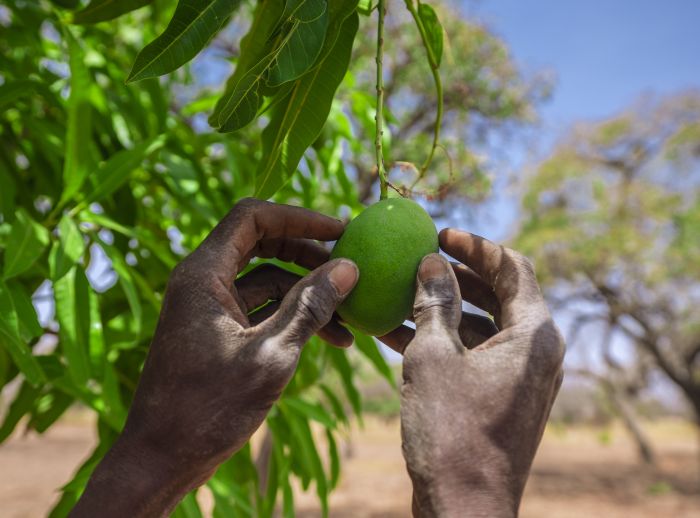
Mali
Mali is facing some of its worst seasons of food insecurity in the last decade. Oxfam and our partners are providing cash or food vouchers, access to water and sanitation, and training about nutrition and how to prevent violence. We are working in Mopti, Segou, and Gao regions, with partners Stop Sahel, Action Mopti, G. Force, and CAEB.
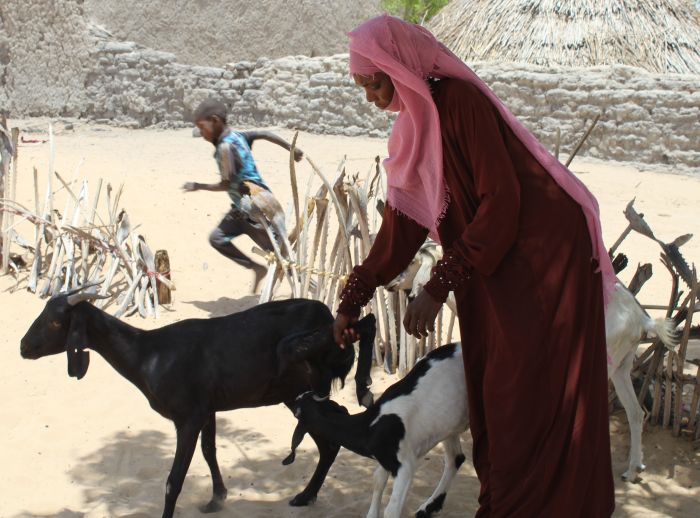
Chad
In 2024, 3.1 million people in Chad were facing crisis or emergency levels of food insecurity -- the highest levels ever recorded in the country. Oxfam is working with partners to help people in Lac and Bahr El Gazal regions displaced by conflict and flooding, providing cash and enriched flour to households with pregnant or lactating mothers and young children as well as access to clean water. The same households and communities will also be involved in meetings designed to help raise awareness of human rights and violence against women, learn what steps to take to prevent violence, and what to do in cases of violence in communities. In response to the sudden influx of people from Sudan starting in 2023, Oxfam installed water storage bladders and piping systems as well as latrines in communities hosting refugees.
Niger
In 2025, the World Health Organisation estimates that 4.3 million people in Niger are in a food crisis. The country is severely affected by climate change, manifested by drought as well as flooding. Roughly 700,000 people have been displaced by conflict, and there are more than 300,000 refugees from Mali, Nigeria, and Burkina Faso in the country. Working with our partners, Oxfam provides humanitarian aid to vulnerable displaced families and people in communities hosting them. We are improving wells and other water supply systems, installing latrines, and promoting good hygiene in schools.
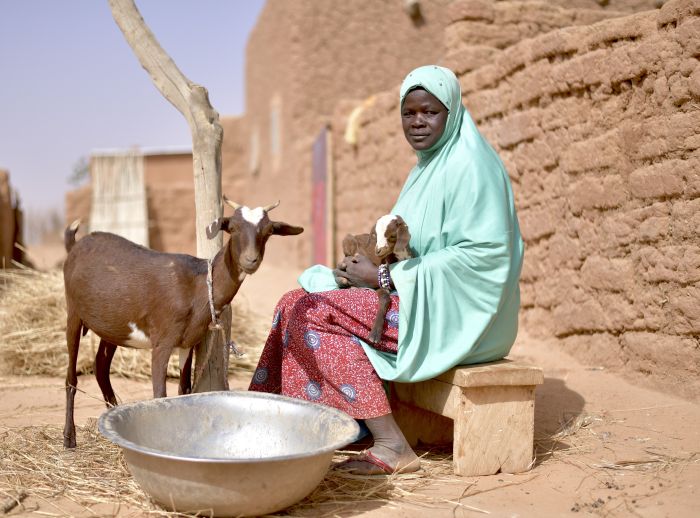
Niger
In 2025, the World Health Organisation estimates that 4.3 million people in Niger are in a food crisis. The country is severely affected by climate change, manifested by drought as well as flooding. Roughly 700,000 people have been displaced by conflict, and there are more than 300,000 refugees from Mali, Nigeria, and Burkina Faso in the country. Working with our partners, Oxfam provides humanitarian aid to vulnerable displaced families and people in communities hosting them. We are improving wells and other water supply systems, installing latrines, and promoting good hygiene in schools.
